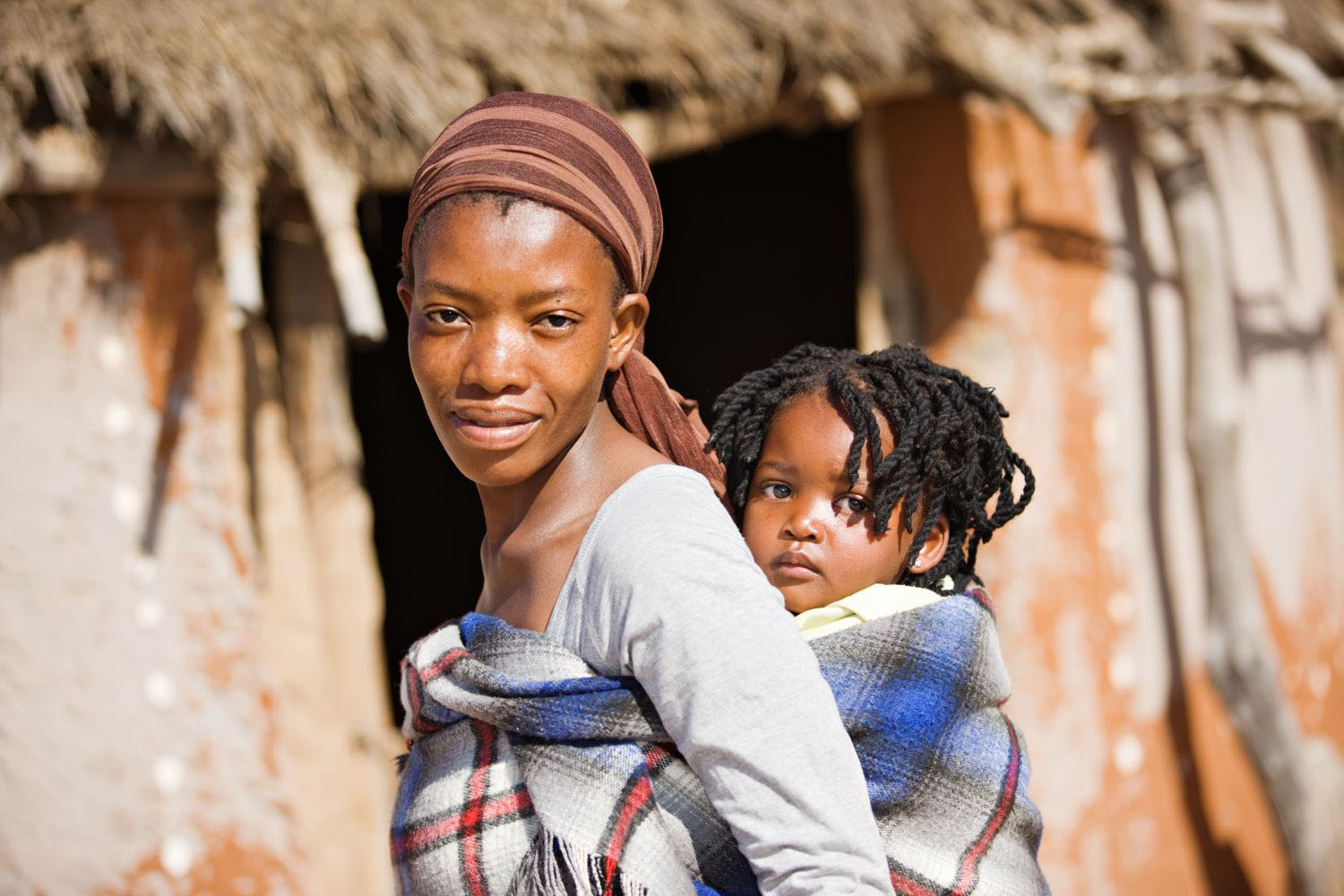Recommended
I just returned from the International Health Economics Association’s biennial congress, held in Cape Town. The theme of this year’s congress was diversity in health economics. I spoke in the opening plenary about (the lack of) diversity in economics research. In this blog, I reflect on my plenary comments and related conversations.
The “subfields” of economics
Fundamentally, economics is the study of human behavior. But not all human behavior is given equal weight. If you live in a high-income country, your behavior is studied by the sub-fields of labor, education, health, finance, environment, and so on. In contrast, if you are in the 80 percent of the world that lives in a low- or middle-income country, all dimensions of your behavior fall into the single bucket of “development.” The use of modifiers further illustrates: “global health” when it’s about LMICs but simply “health” when it’s about the US, UK, Australia, and Western Europe.
This fundamental inequality in the structure of economics affects how grant money is allocated, how journals and conference programs assign space to papers, which candidates are admitted to Ph.D. programs, and so on.
For instance, earlier this year I was at another economics conference, which had a packed program spanning multiple days. But there was exactly one session on “development” with five papers: one on institutions, one on health, one on education, one on poverty, and one on the environment. I suppose the underlying idea is that research on cash transfers in Chad and piped water in Bangladesh hangs together better than research on cash transfers in Chad and the US.
Whose interest is considered “general”?
The most prestigious journals in economics are called “general interest” journals because they publish work on all sub-fields of economics– papers that are supposedly of such high quality that they should be of interest to all economists, i.e., be of general interest.
Unsurprisingly, the top economics journals devote very little space to evidence from LMICs. One study estimated that only 5 percent of papers in the so-called general interest journals study low-and-middle income countries.
Another paper finds that while 17 percent of the world lives in Africa, only 4 percent of the COVID-19 papers published in the top 10 medical journals were “relevant to the continent”.
The words that we use permeate what we value as important. Only considering research from high income countries “general interest” looks down on others as inferior and less valuable. The message this sends is that the one salient feature about people from LMICs is their income. And that the behavior of the 20 percent of the world in high income countries is worth a lot more attention than that of the remaining 80 percent.
Why is economics like this?
An influential paper in economics lays out a theory for groupthink and argues that groupthink leads to “collective denial and willful blindness within groups”. We could use this theory to look inwards. Economics and the funding devoted to it have long been dominated by white men from rich countries. As human beings, we are intrinsically motivated to study the places and questions we understand and care about. The demographic structure of the field could thus explain the focus on rich country evidence.
In addition— or perhaps because of the historical domination by certain groups— the field itself has certain features that lead to it systematically overlooking economic justice. These features, thoughtfully laid out in a new working paper, include a focus on economic efficiency over distributional welfare, on outcomes over process, and on “clean, tractable problems”.
The focus on tractable questions in turn leads to our epistemic reliance on randomized controlled trials (RCTs) and high-quality administrative data from a few high-income countries. While RCTs are a valuable tool, an excessive reliance on them creates a particular power dynamic within development economics that has been extensively written about.
Systematically overlooking problems of economic justice in turn has implications on the pipeline as well. The papers we cite, those that we call “general interest”, those that we laud are seen by young scholars. Gifted young scholars may be turned away from the field or at the very least pivot from, say, “global health” to “health” (in other words, “high-income country health”).
Why should we want diversity?
There are two broad categories of reasons— instrumentalist and intrinsic— to want greater diversity in research.
The instrumentalist reason is that our work is better when we study all of the available evidence. Limiting ourselves to a subset of countries restricts what we learn, so diversity leads to better research. This reason thus argues that diversity is a means to better economics and gives our field relevance.
The intrinsic reason is that all human beings are innately valuable and equally worthy of study. In other words, diversity is an end in itself and it is what gives our work validity.
To make strides towards more inclusive research, we need both classes of arguments— each argument will lead to different, complementary actions and, importantly, resonate with different audiences. While I am very sympathetic to the discourse on the decolonization of research, I do want to note that “de-“ implies taking something away, whereas I view this process as inherently bringing new knowledge to the table.
We will not shrink from diversity, rather we will grow from it.
Some ways to foster diversity
So how do we go from where the profession is to where many of us would like it to be?
A few suggestions. Editorial boards, grant review panels, program scientific committees should focus a lot more on what a paper is telling us rather than where its data are coming from. Another step would be to group topically related papers from around the world in a single conference session. Similarly, when we write our paper introductions, we should cite relevant literature on a topic, no matter where it comes from. At each stage (grant review, conferences, journal editorial processes), we could ask whether team composition adequately involved and credited local knowledge. These may sound like abstract actions for a diffuse set of individuals, but editorial boards, review panels, etc. are not abstract groups of people— we are them, they are us! I have served in each of these capacities.
If the groupthink theory is correct, then another way to diversify research is to diversify the pool of researchers. But the way we currently assess and reward performance is based on what the lives of white men from rich countries looked like a few decades back. For instance, a 6-8 year tenure track following a pre doc, 6 years of graduate school, and a 2 year postdoc interacts differently with a woman’s fertility than it does a man’s.
To level the playing field, we will need sustained mentorship initiatives that acknowledge the different lived experiences of underrepresented minorities— people of color, women, those who do not fall into a heteronormative, binary view of gender. And we need mentorship not just upon entry into the profession, but also to promote people of color, especially women of color, to the highest echelons. WomenLift Health provides a great template for how to invest in a pipeline of women’s leadership.
But fundamentally we must also recognize that the need for such targeted mentorship is a sign that the rules of the game are broken. In the longer term, our goal should be a profession where differential mentorship by race, sex, or ethnicity is no longer needed.
Finally– and perhaps the subject of another blogpost– a thoughtful comment from the audience asked presenters about the roles played by local voices and stakeholders in shaping their research. In many instances, entirely white teams of researchers write about communities of color. This in turn made me reflect on the times in my career where I could have done more to center local voices— and the great value of intentionally fostering partnerships that center local knowledge. Unfortunately, academic economics does not provide the incentives to bring along those less advantaged than you.
Looking forward
Closer to home, I’ve often found conversations around diversity in economics to quickly grow defensive. But in Cape Town, among health economists from 97 countries, I was struck by the commitment to diversity, the openness, respect, and nuance with which it was discussed, as well as the constructive and forward-looking tone. Economics has a long way to go and much to learn from fields like sociology where there has been a real reckoning about power in research, but progress along these fronts will not occur unless we are committed to having difficult conversations.
I have long found the Zulu greeting “sawubona” to be quite moving. It literally means “I see you” but a more expansive translation might be, “I see all of you, I see your experiences, your history, your passions and your pain.” I invite my fellow economists to fully see everyone we share this planet with.
I thank Kara Hanson, the IHEA President, for inviting me to the plenary, David Bishai for suggesting that I write this blog and Edwine Barasa, David Evans, Victoria Fan, Rob Gillezeau, Karen Grépin, Kara Hanson, Yusuke Kuwayama, Di McIntyre, and Evan Ottenfeld for conversations that have helped shaped this blog.
Disclaimer
CGD blog posts reflect the views of the authors, drawing on prior research and experience in their areas of expertise. CGD is a nonpartisan, independent organization and does not take institutional positions.
Image credit for social media/web: melita / Adobe Stock





